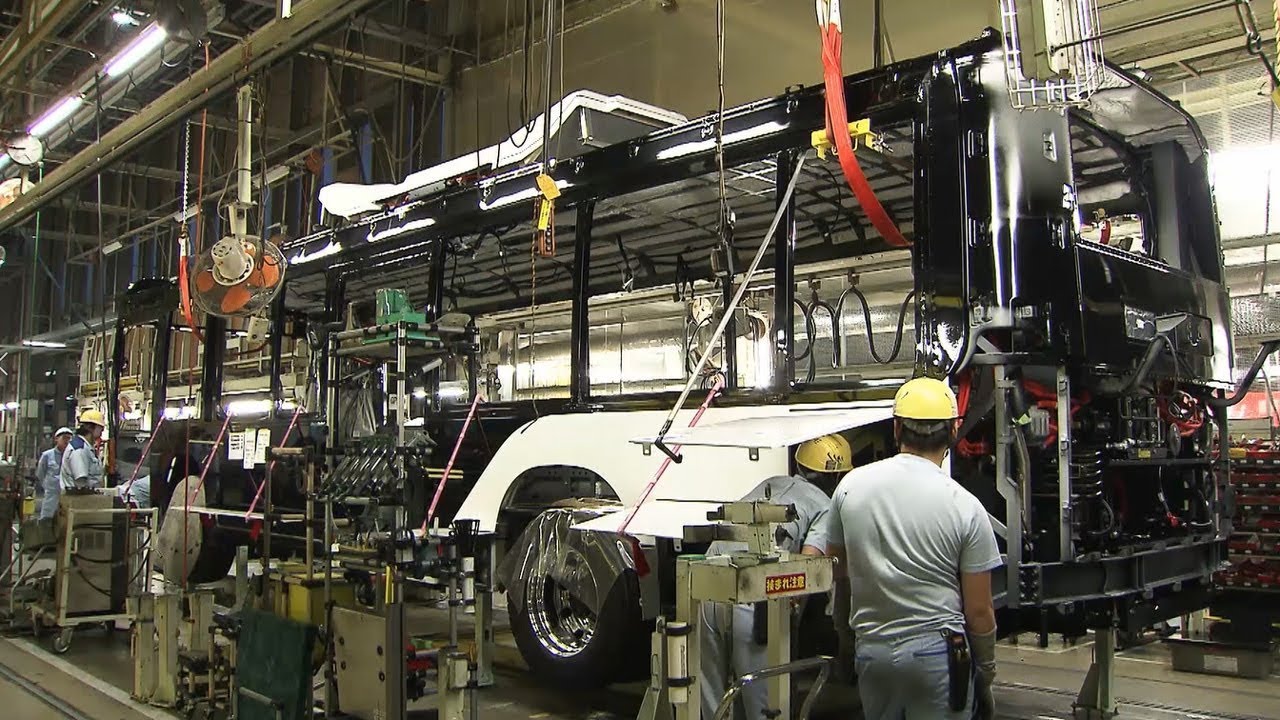Zim to get bus assembly plant
Zimbabwe, through a joint venture cooperation with Belarus, will soon set up a vehicle assembly plant for the production of buses suitable for the local terrain, a move that dovetails into President Mnangagwa’s thrust for industrialisation.
After a meeting with Foreign Affairs and International Trade Minister Dr Sibusiso Moyo, visiting Belarusian Minister of Industry, Mr Piotr Parkhomchik announced the plan.
“About the buses, we are not talking about the supply, but the assembling altogether to develop new buses which are suitable for Zimbabwe,” he said.
There would also be the training of local engineers to work at the plant as part of the cooperation between the two countries which is also hinged on agriculture, mining, infrastructure development as well as science and innovation.
Minister Parkhomchik said the projects needed to be put into the cooperation blueprint without delay.
“The visit is going on with a very warm reception.
“We are looking at mutual international trade, the Transport Company and joint venture construction of infrastructure like roads and we need to do it quickly.
“In the near future, we will visit each and agree on the next roadmap as quickly as possible and I am confident the level of the relationship between the two countries is going to be strong.
“The second deal we agreed on is garbage removal management and availing all the needed equipment,” he said.
Dr Moyo said the Belarus cooperation deal and the recently commissioned John Deere project for the supply of agriculture mechanisation equipment, were a culmination of the re-engagement policy of President Mnangagwa.
“The principle for re-engagement and engagement is open to all the countries in the world and remember we have said we want to cooperate in business with everyone for the benefit of our people.
“President Mnangagwa’s thrust at his inauguration was that Zimbabwe was open for business. The fruits of this policy is what we witness today. What we witnessed two months ago with the John Deere project is what we have witnessed today with the Belarusian project of mechanisation,” said Dr Moyo.
“Remember Belarus used to be the biggest industrial hub within the USSR. It was the centre of industry, engineering and production,” he said.
Zimbabwe was engaging other countries to transfer technology and industrialise by manufacturing a lot of products.
“We have also asked that whatever form of engagement which we make, must be sustainable. We have agreed to actually concretise a joint commission agreement so that we can actually deal with a number of areas which are critical.
Belarus last year offered Zimbabwe 500 buses to help modernise the country’s public transport system following visits by President Mnangagwa to Belarus, Russian and Kazakhstan.
The Eastern European country offered to help develop Zimbabwe as a regional transport hub using its own experiences.
Government is exploring options on how to best utilise the offer.
Preliminary work to assemble 300 Zimbabwe United Passenger Company (Zupco) buses in partnership with Belarus begun earlier this year, with Government setting up a taskforce to superintend over the implementation of the project, expected to take off soon.
The taskforce — made up of the ministries of Local Government and Public Works, Finance and Economic Development, Zupco and AVM Africa — has already come up with a roadmap for the project.
Design specifications of the buses have since been sent to the Eastern European country to determine the cost of the knocked-down kits.
A new fleet for the parastatal is also being progressively procured from China and South Africa.
Government’s targeted intervention through providing subsidised transport is meant to insulate commuters from extortionate fares charged by private transport operators.
Negotiations are also underway with Chinese manufacturers to set up bus assembling plants locally after Government recently procured buses from the Asian country.-herald.co.zw











